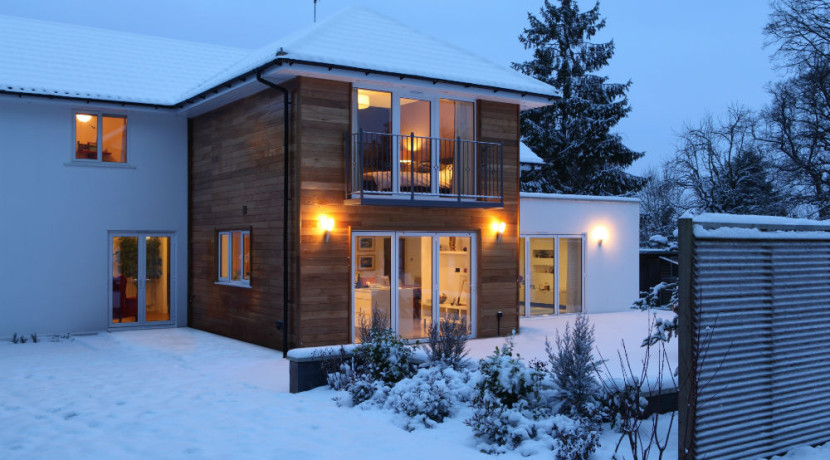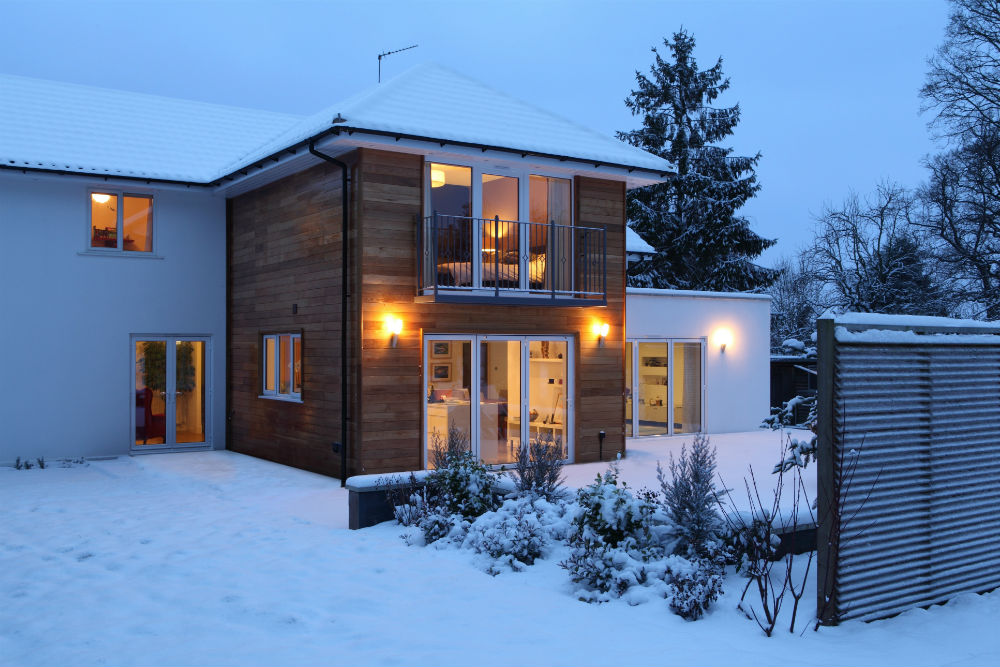Home maintenance checklist: Winter
Protect your most valuable asset with these home maintenance tips
OK, so the snow fell. And it didn’t stay. But it was a great reminder that my husband and I still have a few unfinished home maintenance tasks left to check off the list. The last time I wrote about home maintenance I compared these seasonal tasks to a healthy lifestyle. The more I take care of myself, the better I function—the more I take care of my house, the better it, too, functions.
<p”>Here’s your winter checklist. Also, I want to remind you that this type of list is organic and on-going process; a schedule that will change and update as readers provide their experience and experts offer their advice. For that reason, I encourage you to comment, email or call me. I’d love to know your tips and tricks, as well as areas you think are inaccurate, obsolete, or omissions that need to be added. I look forward to hearing from you.
WINTER HOME MAINTENANCE CHECKLIST
Total time invested: 185 minutes (or just over three hours) to 845 minutes (or just over 14 hours)
Total approximate money invested on DIY-tasks: $20 to $360
Total starting cost for professional help: $1,075
1) FOUNDATION: Shovel the snow away from your home’s foundation
WHY: The key to preventing expensive foundation damage is to keep water away from your house. Since snow will eventually thaw and turn to water, you can prevent potential flooding and water damage by shovelling the snow away from your foundation. If keeping a “snow-free” moat around your house is a bit too much, consider shovelling snow away from areas more prone to water damage, such as basement windows and concrete steps.
HOW: Grab a shovel and start digging. Remember you’re doing physical work, so pay attention to over-exertion and make sure you hydrate.
TIME: 1 to 4 hours
MATERIAL COST: $0
PROFESSIONAL COST: $400/season and up.
2) FOUNDATION: Remove ice dams on low-pitched roof and gutters
WHY: If you decide to ignore ice dams on your roof or gutters come the spring you may find damage to roof shingles and water penetration into your foundation.
HOW: For ice-dams on your roof and gutters, use a shovel to clear off accumulated snow and to chip away at already formed ice.
TIME: 30 minutes to 2 hours
MATERIAL COST: $0
PROFESSIONAL COST: $400/season and up.
3) FOUNDATION: Remove snow and ice from external vents
WHY: Blocking vents with ice can also cause damage to your roof, but the real danger is that it won’t allow your house to properly and effectively heat and cool. This will put pressure on your heating system and could lead to moisture problems (which can lead to mould or rot) in the home’s wooden structure.
HOW: Use a shovel or brush to clear off accumulated snow and to chip away at already formed ice.
TIME: 30 minutes to 2 hours
MATERIAL COST: $0
PROFESSIONAL COST: $200/season and up.
4) HVAC: Replace furnace filters
WHY: To keep your furnace running efficiently, you need to change the filters every three months. These filters collect air-borne debris and allergens. Keeping a dirty filter means your furnace has to work twice as hard to push out heat.
HOW: Slide your old filter out (and put it in the garbage. Slide the new filter in. When in doubt, check your furnace’s manual (either hard copy or online). If your filter is not disposable you will need to hand wash the filter to get rid of all dirt and debris. Remember, use a non-toxic cleaner and tap water—nothing else.
TIME: 5 minutes
MATERIAL COST: $20 to $160
PROFESSIONAL COST: n/a
5) EXTERNAL: Winterize yard equipment
WHY: To prolong the longevity of patio furniture and yard tools, you’ll want to winterize and store the items. If not, you may end up replacing these items quicker then anticipated. Given that a good patio set can set you back $500 or more and a decent gas lawn mower can cost $300 or more, it’s good practice to winterize your outdoor gear.
HOW: Patio furniture: Wipe down the furniture. If possible, stack and store the furniture out of the elements (in either a shed or inside your garage or home). If you don’t have space consider stacking and covering the furniture pre-made covers or a tarp. The point is to eliminate exposure to the elements. For garden tools, make sure you find a place where you can store the tools out of the elements, but before you store and cover the machines, make sure you drain the oil. Oil in unused tools gets sludgy and makes the engine work harder (and makes the tool more inefficient). To prolong the life, drain the oil (there’s always an oil cap) just make sure you store the waste in a leak-proof container that can be taken to your local hazardous waste facility.
TIME: 1 hour to 6 hours
MATERIAL COST: $0 to $200
PROFESSIONAL COST: $75/machine and up.
Disclaimer: Original Source Content from Romona King – Moneysense.ca


